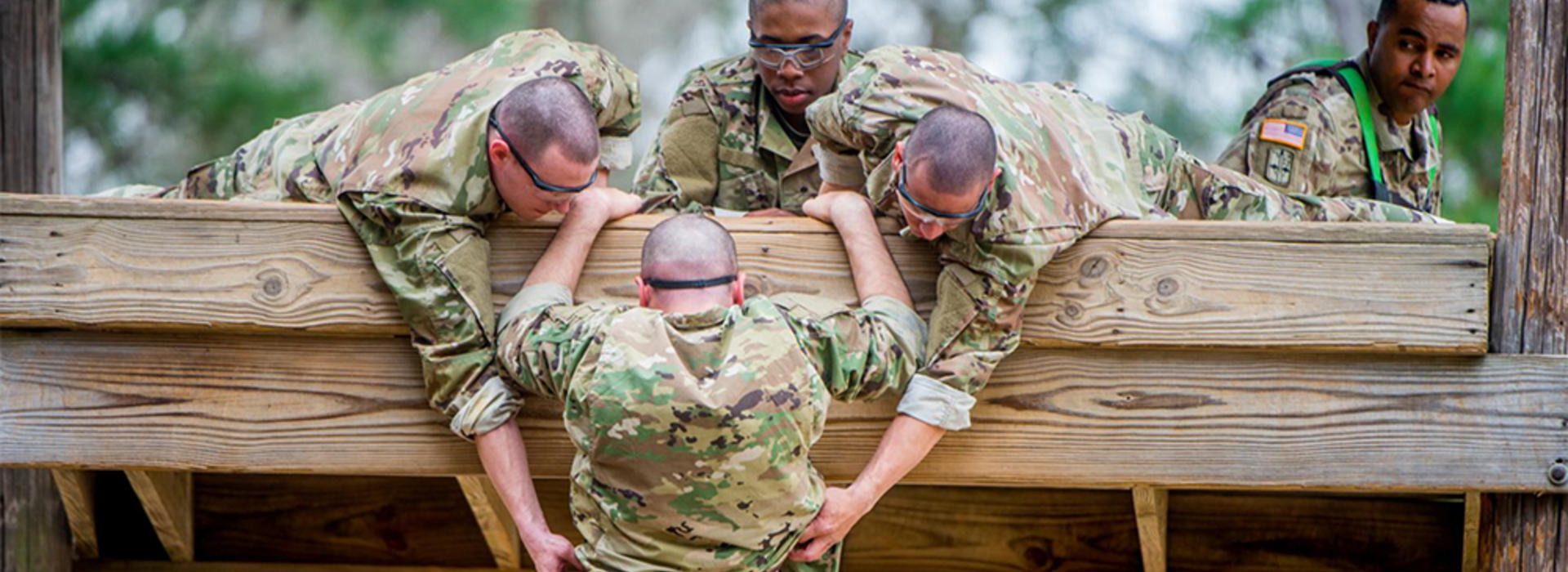
Faculty Help Build Resilience in Providers and Staff Using Military Model
In March, University of Minnesota Medical School leadership expressed their concern and the need for more support for providers and staff due to the increasing number of COVID-19 cases.
The pandemic poses unique threats to front-line caregivers, not only physically but also mentally. The professional and emotional stress that providers are facing includes ongoing uncertainty about the scope of the threat, concerns about adequate personal protective equipment and worry surrounding the complex decisions they will need to make. Many are experiencing unusual levels of anxiety and stress under these conditions, which places healthcare workers at increased risk for burnout and psychological repercussions.
“This situation is new for everyone—a pandemic is one of the few instances in civilian life that healthcare workers are faced with the possibility of risk to self and risk to family while caring for patients,” said Professor Barbara Gold, MD, MS, from the Department of Anesthesiology.
While the threat of personal harm from COVID-19 is a new experience for civilian healthcare workers, it does resemble the stress and anxiety experienced by individuals in military combat. Colonel Brian McGlinch, MD, a U.S. Army Reserve hospital commander and assistant professor in the Department of Anesthesiology, recognized that certain skills learned in military training could serve as a strategy for maintaining optimal mental resilience throughout a difficult battle in combat. The “Battle Buddy” system has been a strengthening tool in the Army for over 15 years, and Dr. McGlinch believes this could be a useful tool for healthcare workers, too.
Using the U.S. Army’s system as a model, University of Minnesota psychiatrists, psychologists, anesthesiologists and administrators sprang into action and, in just one week, developed and deployed the novel Minnesota Resilience Program (MinnRP) for protecting the emotional well-being of M Health Fairview’s healthcare workers in the COVID-19 climate.
The multidisciplinary Medical School faculty team includes Drs. Gold and McGlinch, and Jeffrey Wozniak, PhD, LP, Sophia Vinogradov, MD, and Cristina Sophia Albott, MD, MA, from the Department of Psychiatry and Behavioral Sciences.
“We first initiated MinnRP in the University of Minnesota Medical Center’s Medical Intensive Care Unit 4C and Surgical Intensive Care Unit 4A,” Dr. McGlinch said. “Unlike a lot of other approaches, this model puts the support directly into the hands of the practitioner in a team-based and unit-focused manner. We are rolling this out in other locations and departments as quickly as possible.”
Pairing Up
“As a larger healthcare system, it is important that we work together and that support is provided for everyone who is helping in these unprecedented times,” Dr. Gold said.
MinnRP emulates the U.S. Army’s peer-to-peer support system and encourages healthcare workers to stand together and support each other in pairs in order to help anticipate and plan for specific stressors they will face. This method of “stress inoculation” is a preventative process of action designed to get out in front of the issues healthcare workers will face before they are too drained to manage them.
Healthcare workers are assigned their partner based on the kind of work they do, how long they have been in practice, where they work and their lifestyle. This helps create common ground between the pair, so that, together, they can tackle issues that arise in similar working environments and job duties.
Several times a week (and sometimes once a day), providers check-in with each other briefly to share their reactions to stressors and anxieties, listen to and validate their experiences. Given that they understand the daily challenges of a particular unit, they can provide each other with an additional perspective, support resilience and encourage additional help if stresses and anxieties intensify.
Additional Support
For the second tier of MinnRP, Dr. Vinogradov, department head, and Dr. Wozniak, division director—both in the Department of Psychiatry and Behavioral Sciences—quickly assembled a team of psychologists and psychiatrists to work with their colleagues throughout the medical center as mental health consultants.
When MinnRP is put into place in a particular department, the mental health consultant works with small groups of providers in each unit to engage in stress inoculation where they anticipate and plan for specific stressors they are likely to encounter and identify the stressors likely to be the most troubling to them. Mental health consultants work with individual providers to help them develop a personal resilience plan, which includes the option of reaching out for additional support if stressors accumulate to dangerously high levels.
“The team consultant is available to help deter more serious mental health consequences by working directly with individuals who experience escalating or cumulative stressors and whose coping responses are becoming overwhelmed,” Dr. Wozniak said.
Ongoing Research
Since the COVID-19 pandemic is plagued with uncertainty, how to best support healthcare workers in this time is largely unconfirmed. The team at the Medical School is determined to help create new knowledge by studying the effects of this intervention and learning ways to improve it.
“We see this as an opportunity to learn and then share what we learn,” Dr. Vinogradov said. “We are collecting all of the negative and positive feedback we are given from providers, confidentially of course, and asking that they complete brief questionnaires a couple times per week.”
Dr. Albott, who specializes in research related to post-traumatic stress disorder, trauma and resilience, will be inviting providers to share self-reported data on quality of life, cumulative stressors, retention, burnout and the ways in which these things change over time for healthcare professionals and in the healthcare industry.
“Burnout is an increasing problem in healthcare professionals, and it will be exciting to see if this program will help promote resilience and well-being,” Dr. Albott said.
Taking care of front-line and side-lined healthcare workers physically and emotionally is crucially important for our providers and patients now and in the future.
“We want to take care of our people so they feel fit to come back to the hospitals after this pandemic is over,” Dr. McGlinch said.